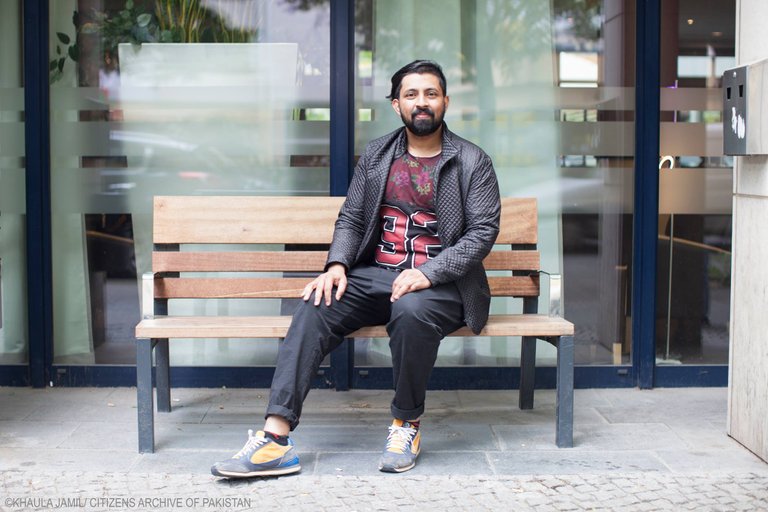"I remember when I moved to a small town in Denmark where everyone was white, people used to touch my hair because they had never seen black hair before.
I was displaced at an early age from my home country (Pakistan) and went to live in Europe with my mother. It angered me a lot and I became very rebellious and started doing things that were not regarded as appropriate behaviour from a son. My journey of trying to figure out my identity in a cultural, racial and sexual perspective started around then. I couldn’t become the next door Danish boy because I didn’t look or feel the part.
Once I was older, I decided to go back to Pakistan alone - not with my mom like in the past when I was limited to spending time only with my family and relatives- I wanted to discover it on my own. One of the sub cultures that fascinated me a lot were Khwajaseras. They had a “thirdness” in them that I could relate to. My grandparents had a house in a smaller city in Pakistan, growing up when we would visit them the local khwajasera’s would come over to give blessings. This ritual stayed with me for many years and I was always curious about it. I knew the transgender phenomena in the typical Pakistani sense that they can bless you or curse you etc. - a very singular definition of who they are. So when I came back alone to Pakistan I decided to look into their culture more deeply. I started making friends. I met Neeli Rana, a very famous transwoman/activist from Lahore and one of the people responsible for making the law that recognised transgenders as a third gender in Pakistan.
I don’t consider myself a third gender but I definitely have a ‘thirdness” in me - especially living far from home. I came back to Denmark after my trip feeling like I must do something to help the trans community. I ended up going back and making a documentary highlighting four transgenders and their life in Pakistan.
The few friends I had in Denmark told me how much I had changed and that they felt I was too obsessed with Pakistan, politics, transgender activism and their rights. It’s true. I had changed. I was no longer interested in the leisures and luxuries I had living in Europe- I actively started to give them up. The most beautiful experience I’ve had in life is living with the trans-community in Pakistan. Whenever I i visit, sometimes for three or four months, I live in Neeli’s two room house in a semi-slum area in Lahore. It’s very cosy. We have mattresses on the floor and nearly 25 of us live there with almost 12 or 13 people at night. We talk about regular things. What I love is that khwajasera’s are not pretentious at all - there are no boundaries in their conversations - we say whatever is in our heart. The whole system of trans culture is very honest and the community very strong and tight knit. They are ready to defend each other with their life- no questions asked. Neeli once said to me that the first shot fired at me would have to go through her first. I laughed and told her she could take the second, third and fourth too on my behalf! She laughed at that!
Generally Pakistani’s, I feel, are okay with gender ambiguity because it’s not an alien thing for them. It’s been around for ages. I’ve had conversations with rickshawalas in Lahore and several Pakistani’s with zero formal education about same sex relations etc and I’ve found them to have a very tolerant point of view. They are not the ones with the aggressive outlook about these things. I personally don’t like western terms like “LGBT” that attempt to box genders.
When I do my activism for transgender communities, I talk about civil rights and human rights, the right to be compassionate and the right to love. I believe that no matter who you are, a minority or a majority, every human deserves those rights."

quite touching. You should share the documentary that you made, I am sure it will be a nice watch